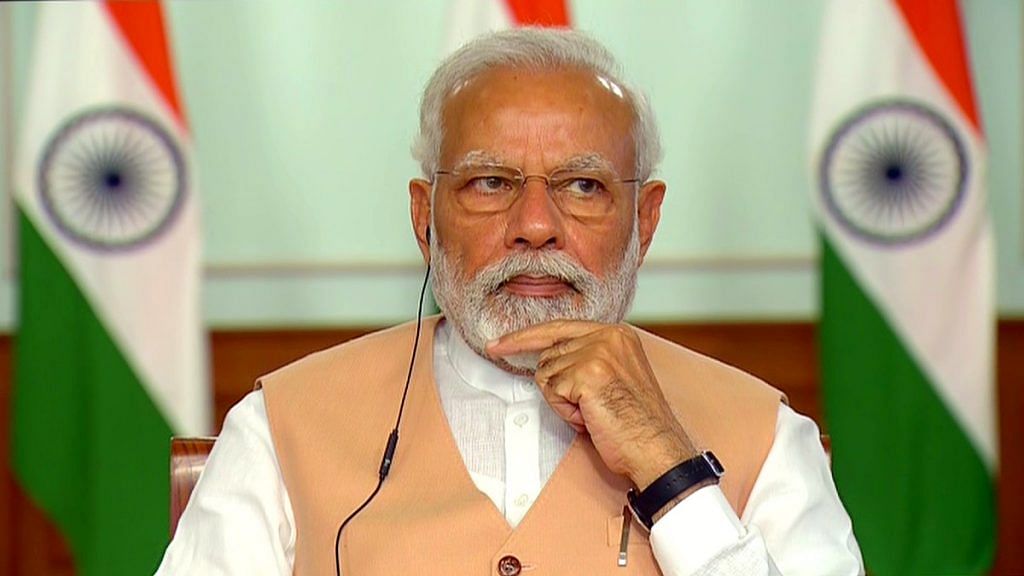Narendra Modi has always pitched himself to India as the leader who will undo the ‘wrongs’ of the last 70 years. But what if Indian’s millennials don’t care about that?
For most Indian millennials, political memory starts with Atal Bihari Vajpayee, not Jawaharlal Nehru. So, Prime Minister Narendra Modi will be judged in the context of the last 30 years, and certainly not the 70.
Rama Bijapurkar calls this generation the Liberalisation Children or LC. Born between 1981 and 1996, they have seen a non-Socialist country and been encouraged to consume, explore freedoms.
So, when Modi supporters and the BJP ask what Nehru did in 1962 to defend what is happening now at the Line of Actual Control, there is a distinct disconnect for India’s millennials.
Also read: India’s young no longer charmed by Modi. Blame economy and ideology
Modi’s image
Before the 2014 Lok Sabha election, Modi raised tough questions on the failures of 70 years of India’s ruling system, the country’s economic condition and defence capabilities and won the mandate. Before the 2019 Lok Sabha election, Modi capitalised on the emotions of ‘first-time voters’ and his image of a stern decision-maker after the Balakot strikes. The sputtering economy and high unemployment rate were ignored. He returned with a bang.
One year later, PM Modi has honoured the 20 soldiers killed in Galwan in the scuffle with China. But there is a growing concern that he will raise the pitch in the upcoming Bihar assembly election. He has already talked about the valour of the Bihar regiment while launching the Garib Kalyan Rozgar Abhiyaan. It is assumed that the state with a huge youth population will be swayed. But this may not come true, in Bihar and elsewhere.
The mismanagement of the coronavirus pandemic, jobless workers’ issue and badly hit economy will also be counted as poll issues.
And concerns over economy and jobs are bound to impact millennials, no matter what they think of India’s bravery at the LAC.
Also read: For Indian millennials, 2019 is going to be all about Modi’s personality not policy
New India
Indian millennials have seen India growing, very fast, for the last two decades — they have enjoyed the fruits of economic liberalisation and are connected to others across the world through social media. According to the YouGov-Mint Millennial Survey, in 2019, India had 459 million millennials and post-millennials.
This generation doesn’t have memories of famines, of too many diplomatic defeats at the international level, the Emergency or constant threat of war from Pakistan, except Kargil.
For them, most changes have been on the economy and technology front. And Modi knows that. His first term was all about Gujarat model, raining jobs, laptops, education, Make in India, Start-Up India and Skill India.
The millennials realised that the Congress government under Manmohan Singh was holding India back. The allegations of corruption didn’t help either. They thought Modi will free India from the shackles of indecision and set it on the path to economic progress. In January, 47 per cent millennials said they supported the BJP.
Also read: Modi-Shah’s BJP govt has failed India’s youth and is now stuck fighting them
Changing tune
Soon, that dream burst. Modi’s decisions were not yielding results — from demonetisation to Make in India. The Hindutva narrative and squashing of any opposition became the flavours of the season.
Millennials also felt an increasing disconnect with the ‘WhatsApp University’ and its growing subscriber base. The generational gap was more apparent than ever before.
Millennials wanted jobs and change, and wanted them now. There was no time for the 70-years’ story.
Early into 2020, Finance Minister Nirmala Sitharaman had already blamed millennials for the slowing automobile industry. To add to their woes, the unplanned lockdown left the economy battered and the millennials beleaguered.
The term ‘millennial’ doesn’t only signify those happy-go-lucky youth on the covers of glossy magazines. It also includes those who we saw walking on foot for hundreds of kilometres during the lockdown. The majority of low-earning millennials have gone bust and are waiting for a miracle.
Also read: How social media memes became a political weapon to woo first-time voters
Mental health is real
The recent bravado on social media regarding China and the confusing reactions of BJP leaders have left many millennials baffled. See TikTok or Facebook or Twitter reactions to Modi now.
In general, it seems the anxiety levels of millennials in India are at an all-time high. There is a sense of frustration and helplessness. Something often brushed aside and disregarded.
Students in prestigious universities such as Jawaharlal Nehru University, Jamia Millia Islamia, and Aligarh Muslim University have been a constant target of the Modi government. It must be noted that despite all allegations, these institutions have featured on the list of best universities, even government-published ones.
Similarly, one can’t ignore the millennials of Kashmir. Since the ‘lockdown’ in Kashmir in August 2019, economy, as well as education, have been disrupted. They can’t even access proper internet.
Mental health is a major issue in the 21st century. It can’t be ignored. People are finally speaking about it. And it is not a city-only issue either.
We can’t blame Nehru or the opposition for it. Sooner or later, most millennials will have millions of questions for PM Modi. It’s a generation that judges by the ‘now’, not the past.
Views are personal.
